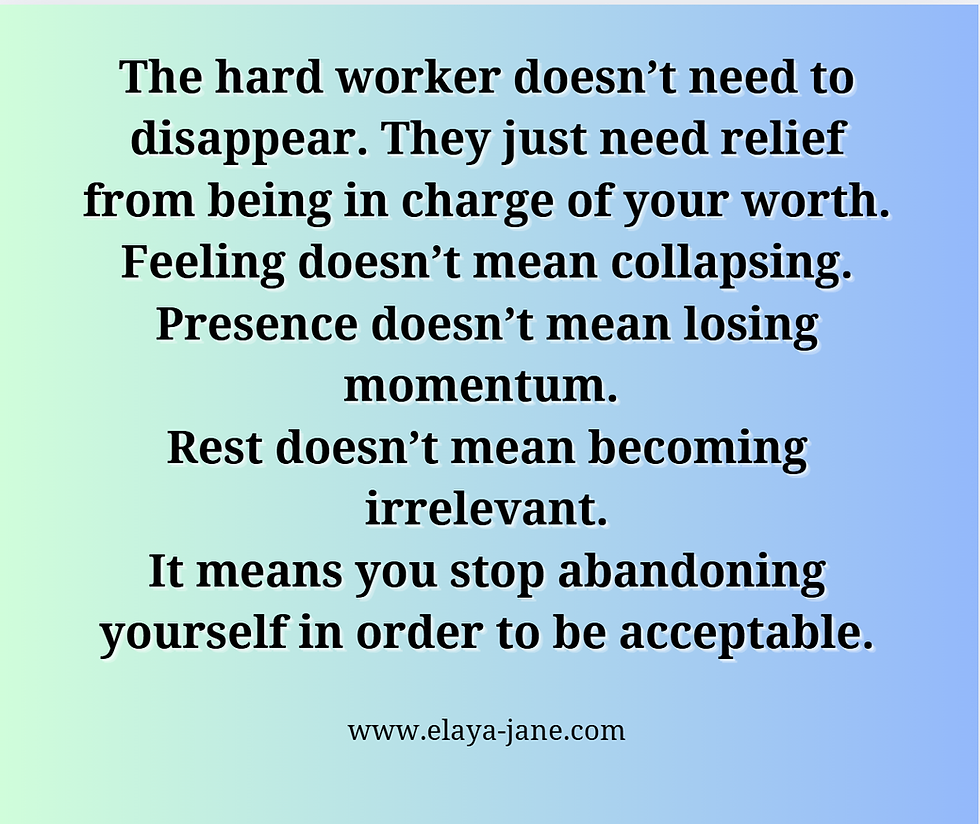Feeling guilty Lately?
- Jane McGarvey
- Aug 27, 2024
- 3 min read
Updated: Feb 5, 2025

The Power of Guilt: Embracing a Path to Growth
Guilt is often seen as a negative, even destructive, emotion. But before we rush to demonize it, it’s worth pausing to consider its purpose. Why do we feel guilt? What role does it play in our lives? When we explore these questions, we may discover that guilt is not merely a burden but a guide, leading us toward deeper understanding and personal growth.
Guilt arises when our actions, or even our thoughts, conflict with our values or our sense of self. It’s a signal that something is amiss, urging us to reflect on our behavior and its impact on others. Rather than dismissing guilt as purely negative, we can view it as an invitation to delve deeper into our relationships with ourselves and with others.
One of guilt’s primary functions is to foster introspection. It pushes us to examine our actions, motivations, and the consequences of our behavior. This introspection can lead to greater self-awareness, helping us recognize patterns or beliefs that may be holding us back. In this way, guilt becomes a catalyst for growth, offering us the opportunity to practice accountability, forgiveness, and compassion—not just for others, but for ourselves as well.
To deny guilt when it bubbles up inside us is to deny a fundamental part of our human experience. In doing so, we limit our ability to live authentically. Guilt, uncomfortable as it may be, is a part of the rich tapestry of emotions that make up our lives. It’s a sign that we care, that we have values and a moral compass guiding our actions.
Instead of suppressing guilt, we should embrace it. Be vulnerable. Express the guilt you feel because you deserve to experience the full spectrum of your emotions. Allow yourself to feel the discomfort, and then use it as a stepping stone toward greater self-understanding and personal growth.
When we allow ourselves to feel guilt fully, we open the door to transformation. We learn to forgive ourselves and others, to practice compassion, and to accept the parts of ourselves that we might otherwise ignore. In this way, guilt becomes not just a painful emotion, but a powerful tool for living more authentically and deeply.
So next time you feel guilt rising within you, don’t shy away from it. Lean into it, explore it, and see where it takes you. You might find that it leads you to a place of greater understanding, compassion, and ultimately, peace.
Here are six practical exercises to help you let go of guilt:
1. Write a Forgiveness Letter (Even if You Don’t Send It)
Write a heartfelt letter to yourself or the person involved, explaining your feelings of guilt. Express any emotions you’ve been holding onto, and then offer forgiveness, either to yourself or the other person. You don’t have to send it—the act of writing can help release those heavy feelings.
2. Practice Self-Compassion
Set aside 5–10 minutes each day to practice self-compassion. This can be done by repeating positive affirmations like, “I did the best I could at the time,” or “I am human, and I’m allowed to make mistakes.” Let yourself feel empathy and kindness toward your own mistakes.
3. Engage in a Letting Go Ritual
Create a small ritual to symbolize releasing your guilt. Write down your guilt or regrets on a piece of paper and then safely burn, shred, or bury it. This symbolic act of release can have a powerful emotional effect and help you move on.
4. Challenge Guilt-Inducing Thoughts
Identify recurring thoughts that bring guilt. When these thoughts arise, ask yourself: "Is this guilt serving me?" Replace the guilt-inducing thought with a more balanced perspective, such as, “I’ve learned from this, and I can move forward.”
5. Make Amends or Take Positive Action
If your guilt is tied to something you can fix, take steps to make amends. This might involve apologizing to someone or correcting a mistake. If that’s not possible, take positive action by doing something good for others or yourself. It can create a sense of balance and closure.
6. Practice Mindful Breathing
When feelings of guilt surface, practice mindful breathing for a few minutes. Focus on deep, slow breaths, allowing the emotions to rise and fall without judgment. This simple act of mindfulness can help reduce the intensity of guilt and create space for letting it go.
For more insightful tips like this one, check out The Adjustment project on facebook. If you would like to work with me to understand and bring resolution to your own supressed guilt, then you can book a session via the website (Gympie, Yandina, Online): www.elaya-jane.com



Comments